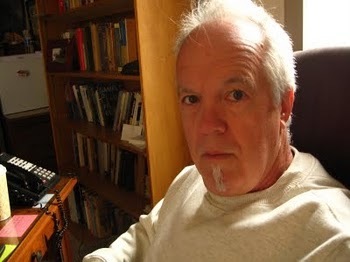 |
| (Self) |
Hume told us that miracles do not exist since a miracle would constitute a violation of the "laws of nature." For Hume, "the universe was taken to be a closed system, immune to any interventions or interruptions by any meddling deity."
Many Jesus-followers, especially pentecostals like myself and Smith, believe miracles occur. The real tension and apparent conflict is not between pentecostal supernaturalism and science per se, but between pentecostalism and "naturalism."
"Naturalism" is a worldview; "science" is not. "Rather, science is a set of practices for empirically investigating and explaining natural phenomena. As such, it is not itself a worldview, but most often it is allied with the worldview of naturalism."
Smith argues that "the practice of the natural sciences does not require the adoption of naturalism; in other words, there is nothing about the nature of scientific practice which requires the metaphysical assumption that nature is "all there is."" Note: anyone who claims that nature is "all there is" has made a non-scientific claim.
Smith goes on to define "science" and "naturalism." I'm going to look, for the present, at science.
First, "science is a cultural institution. "Science" is not a naturally occurring entity like igneous rocks or sea horses; that is, science is not something that either emerges from the swamp or falls from the sky apart from human making." Instead, "science is a network of material practices, constructed environments (including laboratories, instrumentation, ets.), traditions of apprenticeship, learned rituals, and so forth."
Science is not itself "natural," nor is it part of "nature" to be investigated. I can go in my backyard and scientifically investigate the composition of the soil; I cannot go anywhere and scientifically investigate some entity or event called "science." Science, says Smith, is a product of culture.
Consider physics. As a discipline of scientific study, physics has a history. But the stuff of physics has a "nature." "In fact, 'even concepts such as electron and aromatic compound are the sort of thing that has a history.' So, the sciences are cultural products.
Smith is not trying to dismiss or debunk science because it is a cultural product. "Rather, the point is to situate science as a cultural institution in order to clarify and understand what could be at stake" in the Humean claim that "miracles" violate science. For me, Smith is giving us some pretty basic philosophy of science stuff.
Science is a cultural institution. Therefore it "is a set of practices (and related instruments) nurtured by traditions of enquiry in order to foster the empirical and study of nature through observation and experimentation. It is concerned with understanding, explaining, and predicting the operations of nature... often (but not always) with a view to improving the human situation vis-a-vis nature."
So...
- Science is a cultural institution.
- Science, as a cultural institution, is "constituted by practices of empirical observation that are attentive to the regularities of nature."
- In this way scientists seek to understand, explain, and predict the operations of "nature." Examples of "nature" are the macro-operations of climate, or the microscopic operations of a cell.
1. The "regularity thesis." Viz., that pentecostal claims to miracles constitute exceptions to the "regularity" that we see in the so-called "laws of nature." For Hume, there can be no exceptions to the rules. Hume's regularity thesis is a philosophical claim, not a scientific claim.
2. The "naturalist thesis." Viz., "insofar as science necessarily assumes naturalism as its basis, pentecostal supernaturalism is ruled out of court." (K 20%) Science assumes and shows us that the natural world is "all there is." Of course if that were true then, ipso facto, there are no supernatural realities or events. That view is called "metaphysical naturalism."
At this point Smith looks at naturalism. And with that we leave science. "The metaphysical claim that nature is "all there is" is not required by science, nor does it issue from scientific findings."
***
My two books are:
Praying: Reflections on 40 Years of Solitary Conversations with God
Leading the Presence-Driven Church
I am writing... (because I believe God has called me to write)...
Encounters with the Holy Spirit (Co-edited with Janice Trigg - June 2019 - I've submitted the manuscript.)
Transformation: How God Changes the Human Heart
Technology and Spiritual Formation
Linda and I will then co-write our book on Relationships.
Praying: Reflections on 40 Years of Solitary Conversations with God
Leading the Presence-Driven Church
I am writing... (because I believe God has called me to write)...
Encounters with the Holy Spirit (Co-edited with Janice Trigg - June 2019 - I've submitted the manuscript.)
Transformation: How God Changes the Human Heart
Technology and Spiritual Formation
Linda and I will then co-write our book on Relationships.